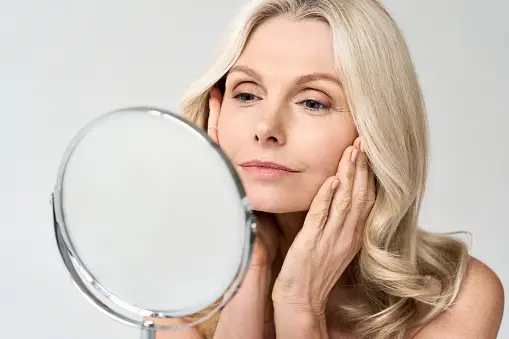Anti-wrinkle injections, commonly referred to as Botox (which is a brand name), are generally considered safe when administered by trained medical professionals. However, like any medical procedure, there are potential risks and complications. Some of the things that can go wrong with anti-wrinkle injections include:
- Bruising and Swelling: Mild bruising and swelling at the injection site are common side effects and usually resolve within a few days.
- Pain or Discomfort: Some people may experience pain or discomfort during or after the injection.
- Muscle Weakness: If the injection is not administered correctly, it could lead to unintended muscle weakness or paralysis, particularly if the toxin spreads to nearby muscles.
- Drooping Eyelids or Brow: Incorrect placement of the injection can cause temporary drooping of the eyelid or brow, known as ptosis. This typically resolves within a few weeks but can be distressing for the individual.
- Headaches: Some individuals may experience headaches following the injections, although this is usually temporary.
- Allergic Reactions: While rare, some people may have an allergic reaction to the ingredients in the injection, leading to symptoms such as rash, itching, or difficulty breathing. Immediate medical attention is necessary if this occurs.
- Infection: As with any injection, there is a risk of infection at the injection site. This risk can be minimized by ensuring proper sterilization techniques and using sterile equipment.
- Asymmetry or Uneven Results: Achieving symmetry is challenging, and sometimes the results may not be perfectly balanced or as expected.
- Migration of the Toxin: In some cases, the toxin may migrate away from the intended injection site, leading to unexpected effects or muscle weakness in nearby areas.
- Long-term Effects: While rare, there is some concern about the potential long-term effects of repeated use of anti-wrinkle injections. Research in this area is ongoing.
It’s essential to discuss the potential risks and benefits of anti-wrinkle injections with a qualified healthcare professional before undergoing the procedure. They can provide personalized advice based on your medical history and individual circumstances.

What not to do after anti-wrinkle injection?
- Touching or Rubbing the Treated Area: Avoid touching or rubbing the injected area for at least 24 hours after the procedure. This helps prevent the spread of the toxin to unintended muscles and reduces the risk of irritation or infection.
- Exercising or Strenuous Activity: Refrain from engaging in vigorous exercise or strenuous physical activity for the first 24 hours after the injections. This can help prevent the toxin from spreading to other areas and enhance the effectiveness of the treatment.
- Applying Makeup or Skincare Products: Avoid applying makeup or skincare products to the treated area for at least 4 to 6 hours after the injections. This allows the toxin to settle properly into the muscles without interference.
- Consuming Alcohol: It’s best to avoid consuming alcohol for at least 24 hours after receiving anti-wrinkle injections. Alcohol can increase the risk of bruising and may interfere with the body’s healing process.
- Taking Blood-Thinning Medications or Supplements: Avoid taking medications or supplements that thin the blood, such as aspirin, ibuprofen, or fish oil, for at least 24 hours before and after the injections. These medications can increase the risk of bruising at the injection site.
- Exposing the Treated Area to Extreme Heat or Cold: Avoid exposing the treated area to extreme heat (such as saunas or hot tubs) or extreme cold (such as ice packs) for the first 24 hours after the injections. These can increase blood flow to the area and may exacerbate swelling or bruising.
- Sleeping in a Face-Down Position: Try to avoid sleeping on your face or in a face-down position for the first night after the injections. This can help prevent the toxin from migrating to unintended areas and ensure optimal results.
- Receiving Additional Cosmetic Treatments: It’s generally recommended to wait at least two weeks before undergoing additional cosmetic treatments, such as facials, laser therapy, or chemical peels, after receiving anti-wrinkle injections. This allows the injected area to heal properly and reduces the risk of complications.
Following these guidelines can help maximize the effectiveness of anti-wrinkle injections and minimize the risk of adverse reactions or complications. If you have any concerns or questions about post-injection care, be sure to consult with your healthcare provider or cosmetic specialist.
